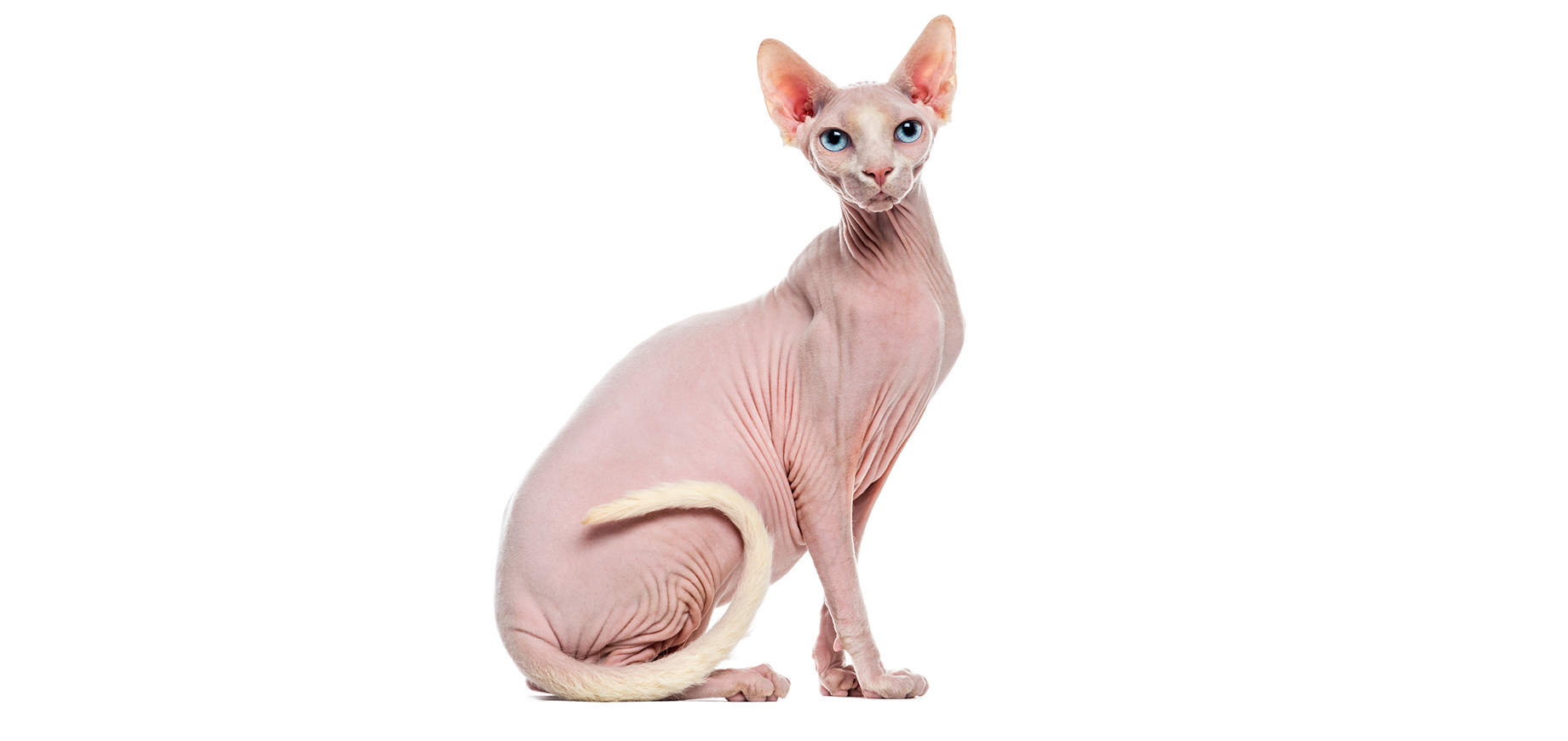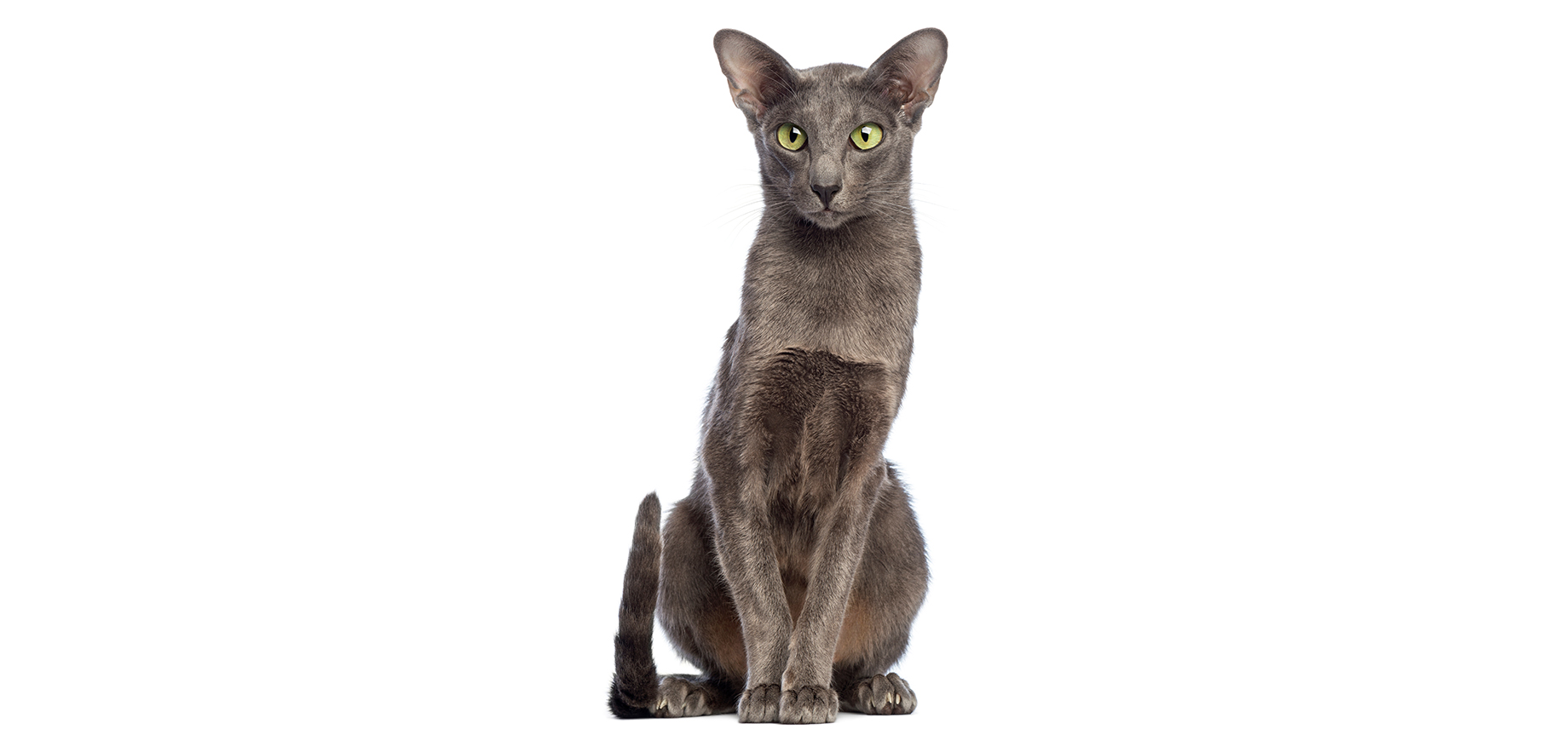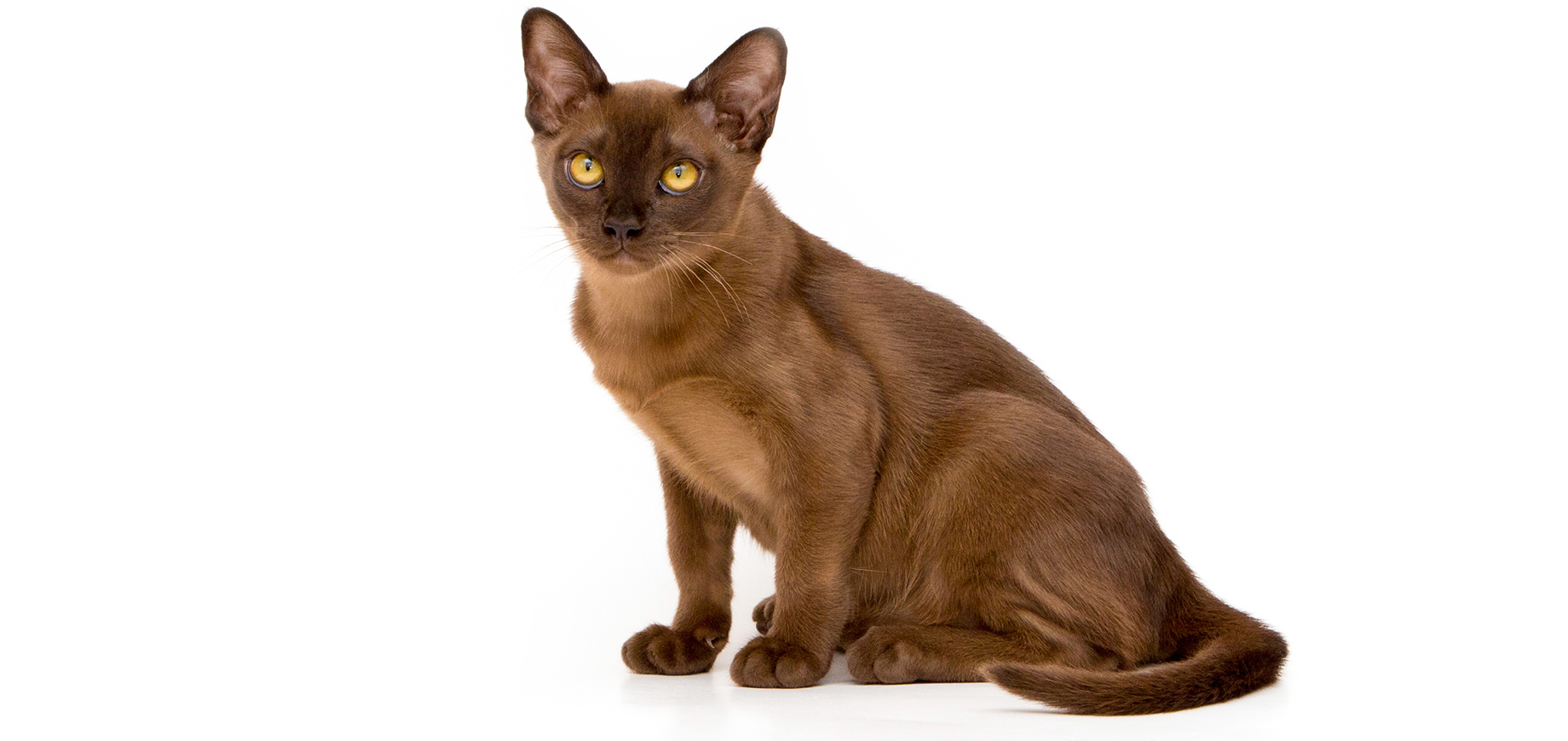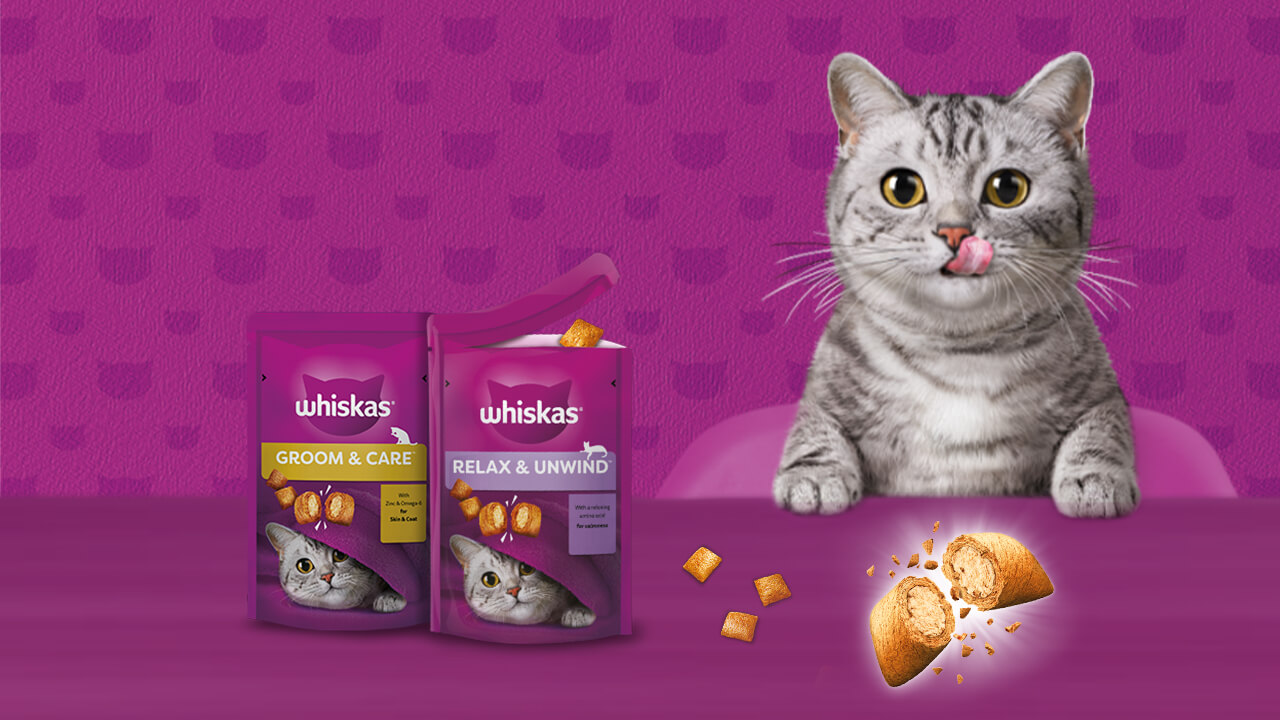Sphynx cat overview
Sphynx cats are instantly recognisable, with their striking hairless-looking bodies and large, regal-like ears. They remain a popular breed amongst cat owners thanks to their loving, affectionate nature and distinctive ‘bald cat’ appearance. This article will look at the classic personality traits and the history of the Sphynx breed, together with fun facts and top tips for taking care of Sphynx cats - including the best grooming techniques, common health issues to look out for, and the best ways to reward your pet with love, play time and the tastiest cat treats.
History and origin of the hairless Sphynx cat
The famous Sphynx cat breed originally came from Canada in the 1960s, when a shorthair cat's litter of kittens happened to include a hairless offspring (the famous kitten known as ‘Prune’) - the result of a rare genetic mutation which occurred naturally. Since then, selective breeding has ensured the survival of the breed’s unique hairless or short, suede-like coat, which has continued to fascinate and enthrall pet owners ever since. Learn more about bringing a new kitten home.
What makes the Sphynx cat stand out: Physical traits
A Sphynx cat will always stand out from the crowd, and they’re one of the most famous hairless cat breeds. Their fur-free bodies give them a bald cat appearance, with no or very little hair, and they have a wrinkled body with a muscular frame, large ears and wide eyes, reminiscent of Ancient Egyptian artwork. The breed has a variety of skin colours and patterns, including white, grey, blue, white, cream and red. They remain extremely popular with pet owners who have allergies, as these hairless cat breeds have little or no fur on their bodies, but it’s worth noting that they’re not completely hypoallergenic. People with a cat fur or dander allergy are likely to still suffer symptoms living with a Sphynx cat.
The Sphynx cat’s personality
People who don’t know the breed may wonder: ‘Are sphynx cats friendly?’, as they have such a striking look, which may not fit the traditional images of cute and cuddly, but they are known for being affectionate, playful and sociable. They are known for their keen appetites, superior intelligence, and their naturally curious cat behaviour. Although this makes for a loving and loyal pet, they do not like to be left alone and they need a lot of human interaction, love and mental stimulation through games and human company. Sphynx cats are not recommended for homes where owners may be out all day, or away regularly.
Essential care tips for your Sphynx cat
Being one of the hairless cat breeds, Sphynx cats won’t need their coat brushed as regularly as other longer hair breeds, but they have other grooming requirements which should be done on a weekly basis to keep them healthy:
- Weekly baths: Unlike longer hair cats, bald cats need regular bathing to remove dirt and oil buildup from their skin. Even cats who groom themselves well will need this.
- Ear cleaning: They can be prone to ear infections, so pet owners must regularly clean their ears and safely remove excess wax or deposits which may get in. A vet-approved ear cleaning solution is the safest way to do this, to avoid the risk of damaging your pet’s ears.
- Sun protection: Due to their lack of fur, Sphynx cats are at risk of sunburn so will need a pet-safe SPF to be applied before they venture outdoors.
- Keeping warm: They feel the cold much more than their fluffy counterparts, so may need jumpers or extra coverings for indoors and out. Many owners also use pet-safe heat pads to help keep them cosy throughout the winter.
- Nail care: It’s important to keep your cat’s nails trimmed as part of your cat grooming routine. Either use human clippers, or pet-friendly ones, and trim gently making sure you don’t accidentally cut the quick.
- Diet: All cats need a nutritious, balanced diet in order to thrive. This should be supplemented with fresh, clean water available at all times. Sphynxes can be prone to digestive issues and tooth problems, so be sure to select a high-quality diet and clean their teeth regularly.
Common health issues in Sphynx cats to watch for
Sphynx cats can be prone to hypertrophic cardiomyopathy (HCM), which is a thickening of the heart muscle. Because of this it’s important to take them to visit the vet for regular checkups. Some cat owners also note that they can be at risk of ear problems, joint problems and digestive upsets, as well as being vulnerable to fungal infections of the skin. Choosing a high quality cat food, adding supplements when recommended, grooming your cat, and taking them for regular health checks can help to avoid these problems.
Fun facts about Sphynx cats
Sphynx cats can have big appetites, and big personalities, offering a huge capacity for love and affection towards their owners. They love socialising and play and are full of fun. They’re also very vocal. Interestingly, their body temperature averages around 4 degrees warmer than other cat breeds! Most love a cuddle, which can help keep them cosy (and you!). A Sphynx could make a wonderful, loyal pet who loves their food as much as they love their family.
Is a Sphynx cat right for you? Key takeaways
Sphinxes can make a great pet for owners who have the time to take care of them, and give them the attention and affection that they require. Although they may take a little more care, and have a more complex grooming routine than other cats can, their winning personality and affectionate demeanour will make it worthwhile as long as you can meet their unique needs. It’s important to do your research fully before adopting any animal, but their loving nature and striking looks have ensured their popularity amongst experienced pet owners.
Frequently asked questions about sphynx cats
How much do Sphynx cats cost?
Depending on the location, colouring and pedigree of the cat, owners can expect to pay several hundreds of pounds for a purebred Sphynx from a breeder. This unique breed is considered relatively rare, very special and can be costly to keep due to their large appetite, more complex grooming routine and their need to see a vet regularly for checkups.
Are Sphynx cats good pets?
Sphynxes can make excellent pets for the right owners, who have the time and dedication to take care of them and give them the affection and stimulation that they need. They love attention, and can be a rewarding and loyal pet, but they are usually recommended for more experienced owners due to their slightly more complex grooming needs.
Are Sphynx cats friendly?
If you’re looking for an affectionate pet, and wondering: ‘Are Sphynx cats friendly?’ The answer is yes! Social, chatty and lovers of cuddles, some owners describe these cats as ‘dog like’ in their desire for attention and their ability to embrace strangers, children and other pets. They’re also highly intelligent, and are known to be expert performers who can master tricks and new skills.
Do Sphynx cats smell?
Sphynx cats are known for their unique smell, which owners describe as ‘woody’ or ‘earthy’. Skin oils and bacteria can quickly build up on their skin, which is why they need regular bathing. They also have sweat glands, unlike most other furry cats, so their skin secretions can sometimes lead to their unique odour and need for bathing.
Are Sphynx cats high maintenance?
Sphinxes are considered a high-maintenance breed, even though they don’t have long hair to groom. Skin oils and sweat can build up on their skin, without fur to help absorb it, so they need regular bathing and cleaning. Their skin folds can be prone to fungal infections, so will need regular checking, and their ears will need cleaning on a regular basis. They also feel temperature changes more readily than other cats, so will need to be kept warm in the cold and given sun protection in summer.














